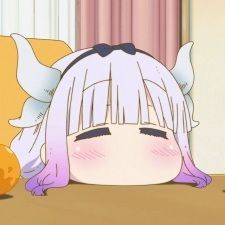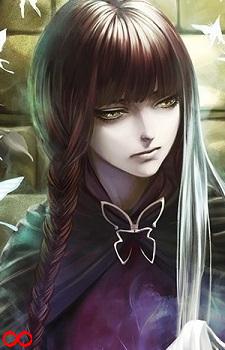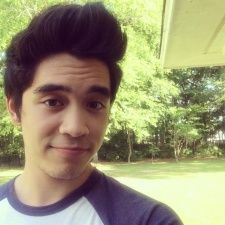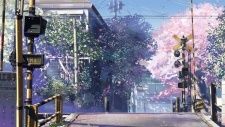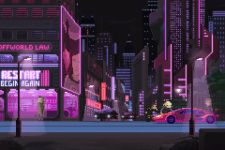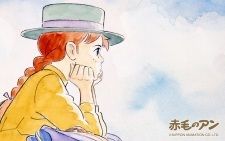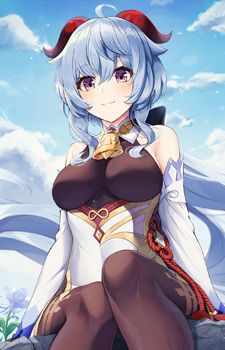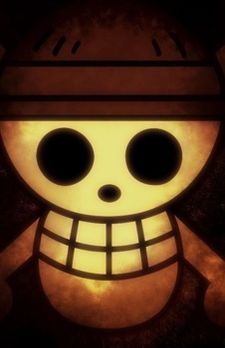**This review will contain spoilers** Hunter x Hunter (2011) is widely considered by many (along with Fullmetal Alchemist: Brotherhood) as the peak of action shounen anime and as what every action shounen anime should aspire to be, an opinion I can’t agree with since, to my eyes, it’s not really a completely well-functioning neither a fully satisfying show to begin with. Keep in mind that, obviously, this is only a perspective based on my own experience, as I can still see and understand the reasons why this is such a praised and beloved series by its fans. I need to start this review with some clarification andbackground. You’d be thinking after reading this that I’m no fan of Hunter x Hunter, but that isn’t the case. (I would definitely not be writing this lengthy review of a TV series if it didn’t mean much to me). Back in 2016, after reading somewhere else how this series was “so much better than Fullmetal Alchemist: Brotherhood”, a series I had recently finished and liked, I felt naturally interested to know what the craze about this show about a boy with spiky hair, a green outfit and a fishing rod was about. I knew it had two versions, one from 1999 and one from 2011, but as a lover of the 90s cel-animation aesthetics (and because it had a dub in my own language), I felt inclined to start it with the older one. And it was love at first sight. It’s quite hard to describe with words, but never before I had felt with such intensity a true sense of immersion from the very start. Hunter x Hunter made me understand the true meaning of the word “hook”; I was to my surprise immediately and joyfully dragged into its world thanks to its enormously captivating, mysterious yet realistic nature and atmosphere and its irresistible somber feel, that made me want to genuinely follow this orphan kid in his quest venturing into the unknown, uncovering mysteries, facing all sort of obstacles and meeting friends and foes in his way. And by the time I finished the mind tests in Trick Tower, the feeling of amazement had become so intense that I knew this series had already become an instant all-time favorite. The original version of Hunter x Hunter gave me a watching experience of those you don’t find very often.
I didn’t honestly feel much of all this when starting later the 2011 remake version by Madhouse. I don’t want to sound like an annoying broken record here, but I really have to say that when it comes to the execution of the first four arcs, Nippon Animation’s 1999 adaptation is so immensely superior that it’s hard to understand how can anyone who has seen both of them believe otherwise. This is not just because of the grittier, bleaker art style and the more natural, earthier color palette and shading/lighting -both in characters and backgrounds- that mix together to create a delightfully sinister, realistic atmosphere that makes you feel you are not only a mere external TV watcher, but instead another character inside this wondrous yet wicked world joining the adventures of our cast, a feeling present since minute 1 that expresses at its fullest during the York City arc, where the city is not shown just as a mere setting, but instead as another omnipotent character lurking from the shadows enveloping the whole cast and narrative. It’s neither just because of the much more realistic characters' designs, nor the more mood-setting, emotion-stimulating music, that here is crafted with way more personality and is more than just BGM; it actually plays a key role in establishing the atmospheres, creating the moments and sucking the audience into the world. No, it is also -and mainly- because of the overall direction and this very meticulous, careful attention to small details which are the true responsible of fully submerging the viewer, capturing way better its desired sense of adventure and mystery, cleverly composing and joining together each scene, setting way better the desired moods for the right moments, keeping the viewer at the edge of his seat always wanting to know how the story would unfold, and ultimately bringing a vastly more exciting, warmer and memorable experience.
2011, on the other hand, is just not the same. There’s nothing technically wrong with its execution, but here I didn’t feel the same level of mind, heart and passion poured into its production that I did feel with 1999. For a lack of a better term, the best way I can describe it is that it just feels “okay-ish”. It lacks touch. It feels somewhat insipid. It just does what it has to do, with minimal effort required. Let’s do what we have to do quick so then we can go to party. The art doesn’t feel anything special, and the colors and lighting decisions don’t suit the overall dark, gloomy and realistic nature of the show (the colors are just excessively bright and the edges too clean to be able to create a more human, natural, relatable environment and the rough, outdoor sense of the show; instead, they make it feel more artificial, plastic-looking and videogame-ish. Nothing inherently wrong with this, but it’s just way less charming, haunting and inspiring!). Some of the characters' designs look too goofy for their own sake, especially Illumi, who in 2011 looks more like a ridiculous clown, whereas in 1999 looks actually like the menacing, merciless creepy murderer he is. Music is nowhere as full of personality, mood-stimulating as the one of the older version is and the tracks are barely memorable, some of them painfully generic (especially the boring drums and guitar riffs one, that doesn’t suit well with the tone of the series), though I have to admit that it improves a lot later during the 6th arc. (Although, when “Legend of the Martial Artist” is played like 2 times per episode, it eventually becomes tiring). But much more important than art and music, is the way the story is told, and especially during the Hunter Exam arc, where the differences are more noticeable. I can’t blame those who say that this arc was “nothing special” or “generic, boring shounen introduction”, because it’s precisely this okay-ish execution that makes it feel like that, as opposed to 1999 where it was a complete different story! The older version put much more attention into the introduction and build-up of both the world, the characters and their backstories, there you can see them interact more with each other and you can see how their relationships grow more smoothly, it does a much better job when it comes to establish a genuine sense of mystery and intrigue about what would happen later on and there are many scenes with nice attention to characters’ facial expressions, showing what are they feeling in regards to everything they are living, an approach that here adds a great sense of naturalism. The 2011 version just paled in comparison regarding this, which decided to speed things up by cutting many relevant moments in order to get to the unadapted content as soon as possible.
I initially wanted and I’d love to delve more into this matter by providing and describing concrete scene-by-scene examples, but considering that would have made this review insanely long, I had to dismiss the idea. Nevertheless, I think my point is clear, and these comparisons can be found with great detail in many other places for anyone interested. All I’m going to add here is that it saddens me the little love and attention Nippon Animation’s adaptation gets in comparison to Madhouse’s one, when it isn’t in any case inferior to it despite the latter going further in the story, much less for shallow reasons such as “because old animation”, “because newer version with higher resolution”, or because “it has fillers” (seriously, this idea that 1999 is “dragged by fillers” I don’t know where does it come from, when the filler count is a mere FIVE episodes and guess what: they are GREAT! Since not only they are actually well-integrated into the story, but also they enhance it: in particular, the additional bonus stage in the exam where the examinees have to cooperate together in order to make an abandoned battleship work to save themselves is very good since not only is highly enjoyable and one of the highlights of the arc, but also because it sets a nice contrast with the following test where they would have to hunt each other). Don’t get me wrong, I’m not trying to say here that 2011’s version of the earlier parts isn’t worth the watch, it’s just that the 1999 one is in a whole superior level, it’s something else, is way more enjoyable, is the one that understands that there’s a viewer outside the screen eager to live something memorable and the one I would recommend, even if unfinished.
But of course, putting stylistic and directing differences aside, substantially speaking on paper it’s 90% the same thing. Regarding the first four arcs (Hunter Exam – York City), it’s a competent show featuring a well-constructed, well-thought intriguing storyline that flows well from arc to arc, blending well the dark and lighthearted moments, and there’s hardly anything wrong to say about them apart from a somewhat anti-climactic ending for the York City arc that didn’t live up to its full potential, by leaving some things not concluded and postponed for later on. It also features a likeable and relatable, yet complex set of characters each with their own motivations, backstories and well-defined personalities that feel real and contrast nice with each other, with Killua being the most interesting of the bunch as he’s the most mysterious and layered one and rightfully so the one that “steals the show”. (There’s also this debate on whether Gon qualifies as a “typical shounen protagonist” or not, which I will not address here since, typical or not, he is a good character anyway). With the exception of ¼ of the main cast (Leorio), all of its members receive a fair share of attention and/or development at some point. The set of antagonists is also good with the Genei Ryodan/Phantom Troupe members being the highlight, who are more than just bad guys who want to do bad things because villains and feel real with good motivations, distinctive personalities and backstories as well. Finally, it features a complex power system (nen) that allows creative fighting (though there’s nothing inherently wrong with just power levels and brute strength, by the way). I don’t want to delve further here since all these elements have already been described better in other reviews.
However, by the time the 5th arc of the show -Greed Island- starts, where Gon and Killua would participate in a game Ging had created and would train their nen abilities, the first real problems arise when part of the “magic” is gone; the series starts to feel quite different by the introduction of a straight fantasy and scifi-ish vibe with the whole getting inside a video game phenomenon (even if later it’s explained that it wasn’t really that) which felt out-of-place when remembering the fairly realistic, natural setting and what I like to call a warm “wood and stone” vibe that had characterized the show so far and which caused the audience to feel a little uneasy. The fantasy elements of the show, which so far had been limited to just some special, quirky abilities of the nen users and some weird creatures in the beginning, are taken to an extreme here when nen starts becoming the excuse for all kinds of unimaginable situations to happen, like building up not only an entire island out of nowhere, but also its inhabitants (!), materializing from nowhere any type of object just by spelling its name, getting teleported and summoning an angel that would out of nowhere regenerate a body part. It was in this arc where it became evident that Hunter x Hunter didn’t have the intentions to keep its original concept the viewer had stuck its mind to and had invested its expectations. Nonetheless, these feelings of strangeness still lay within tolerable boundaries and were nowhere as strong as the ones the next arc in the series would give, an arc which in my opinion, consists in Hunter x Hunter’s fatal error, the lethal wound from which it would never recover and the main reason explaining its non-functioning condition.
And here’s where I wanted to get.
The Chimera Ants arc. The famous Chimera Ants arc. Regarded by many as the so-called “best arc in shounen anime”, the 6th and longest arc in the series is without a question the fan-favorite one, the one that explains most of its praise, and the reason why it places so high in anime online rankings. However, to my eyes (and fully aware I’m in the minority here) the story is quite the opposite: it’s actually the main reason why I think Hunter x Hunter (2011) is NOT really a series that works well, why it frustratingly disappoints and why I had to sadly withdraw from this Hunting party after seeing the direction it had taken. And this is not because “it drags on too long” or because of the “heavy, annoying use of narration”, which are the two most common criticisms people make towards it (and that to my eyes, are not problems at all), but rather because this arc…has absolutely nothing to do with anything that had been shown before. It’s a total momentum breaker, a complete deviation from the premise that had been developing so far, that established an annoying sense of discontinuity thanks to a sudden, unannounced change in focus, making the audience ask itself: “what is this? This is not what I was watching!”. This can be better seen and understood by making a recap of all the previous arcs. If we consider each arc of the series as a chapter of a book, this is, in brief, how the Hunter x Hunter story was progressing:
•Chapter 1: A boy, motivated to find his dad that had abandoned him since birth, leaves his home and must complete a famous, dangerous exam as the 1st step, where he would also meet his first real friends. He passes it.
•Chapter 2: After an unfortunate event towards the end of said exam, he goes to rescue from his wicked family one of those recently met friends, since he wants to be with him and wants him to join him in his journey. He succeeds.
•Chapter 3: The two boys, now together, realize that, in order to be able to survive alone in their quest, they need money, so they go to a place where they think they can make a lot of it quickly. They make it, and then they decide to take a break and return to the boy’s home to rest a bit and evaluate what to do next, where, now with Hunter’s license in hand, they discover the next clue to find dad.
•Chapter 4: The two boys travel to the city where they need to be at to find the next clue, and where also one of the other friends they met in the Hunter exam is going to solve his own issues.
•Chapter 5: The two boys participate in a game that, if won, would put them one step closer of dad. They win it, which leads them to meet a close friend of him that could give them valuable information regarding his whereabouts and/or could give them hints regarding what to do next in their journey.
•Chapter 6: The two boys instead, decide to join a mission to confront an invasion of overpowered beasts that threaten the world.
Huh? This “6th chapter” I’ve just described, as it can clearly be noticed, has little to just no relation with the five previous ones, and constitutes a drastic rupture in the flow of the story. In one minute, it is about a boy who was in his quest to find his father and in the next one, about the same boy and his best friend fighting and stopping from dominating the world powerful beasts that -narratively speaking- come out of nowhere. There is no natural continuity here; the arc is entirely a forced detour from the street in which the plot had been driving so far which hadn’t even been previously signaled at all (foreshadowing), inevitably catching the audience off-guard since there was just no way it could see it coming and getting prepared for it. In other words: the Chimera Ants arc simply pops-up in the middle of an unconcluded story, interrupting the natural flow of the show’s overall narrative, changing both its focus and vibe overnight and forcing the audience to now pay attention to something else completely unrelated to what it had invested both its interest and time in. It almost feels like the magical card Gon uses at the end of Greed Island arc teleports us to an entire different show! No offense to anyone here, but it really makes me wonder if all those who didn’t have any problem with this were actually caring about the story they were watching or not.
It doesn’t help the fact that the transition to its development is not even credible (in which case its inclusion would have been at least more acceptable). Gon and Killua, since the ants issue clearly wasn’t something related to their dad-finding quest and wasn’t any type of “next stage” he had prepared for him like the Greed Island game was, never had any believable reasons to join Kite’s biological investigation and to get involved in it from the beginning, even more when considering that it’s not as if anyone had asked or obliged them to do so or they never really had an option. After spending 75 episodes worth of sacrifice, pain and struggle, facing and overcoming all sort of complicated obstacles to find his dad… why would exactly Gon after all this, have any real intentions to embark himself into another different mission that just never had anything to do with him (and dragging Killua in the process, since he just follows him anywhere he goes) and was not going to help him to fulfill his initial real objective? His attitude made no sense, and his curious voluntary decision to join Kite’s team was nothing but an artifice on the part of the author to build the (artificial) bridge among arcs he needed to be able to now develop a story that had nothing to do with anything he had written before. (Of course, it’s not as if Gon’s sudden change of priorities couldn’t be possible, it’s just that, for narrative purposes, and from an audience standpoint, it was not believable). And it is precisely this lack of a believable or justifiable link between the motivations of the protagonists and the recently emerged biological threat which gives the audience few to no reasons to feel genuinely interested in it, much less when it had been already interested in another conflict/thread beforehand that hadn’t even been concluded yet. If there are no reasons why our protagonists should be caring about this biological anomaly, the new characters it introduces and their stories, then why the audience should?
Some people argue that this isn’t really an issue because there was never a “main story” in Hunter x Hunter to begin with, that it was instead always just “Gon and friends exploring the world”; a collection of stories with different purposes and tones with the protagonists as the only constants, and that this arc was just one of the many different quests, a statement I fully disagree with. Hunter x Hunter was never about random adventuring. Here we had a clear, well-defined goal from the start. Moreover (and unlike some other battle shounens), the protagonist was actually and actively doing actions for the achievement of that goal since day 1. It was this goal the common thread that was unifying all the previous arcs. How can it be said then that there was never any overarching story? There was a clear direction here, and the Chimera Ants arc opted to deviate from it. Others say that Gon didn’t dismiss his search for dad, and just decided to follow Kite because he was well-respected by him. This could be true, but we as an audience, we expected him to continue with what he had been doing so far because we were invested in THAT struggle, yet the show, in the form of Gon’s decision, asked us to now be invested in something else and to forget for a (not precisely short) moment of the main reasons we were following the show. The whole arc then for these reasons felt ultimately like a gigantic filler arc, except that it wasn’t! It’s quite funny and curious to notice how the arc that was sold as the “main dish” or the “main attraction” of the series, and the one the fanbase favorites the most, actually was the one with the least amount of relevance and that least had to do with its premise!
But what was really wrong with this? Why is it really bothering? Not only because of the continuity break and sudden focus-change I mentioned earlier, but in reality because the “DNA” of the show is suddenly artificially mutated into something else here. In concrete terms, with the forced inclusion of this arc, Hunter x Hunter is transformed (at least the way I see it) into what it never really was: a straight battle shounen about fighters and fights. Gon and Killua are now these full-time, “badass” super-warriors with cool superpowers that feel the duty to stop evil creatures from doing damage to the world, and Hunter x Hunter, once a series about a boy in his quest to find his dad, is now a series about fighting powerful enemies and saving the Earth.
Like…seriously. Is this the reason why the audience signs up for in the beginning of the show when it knows nothing about it? Does the audience expect to watch another Dragon Ball Z with large-scale battles, powerful enemies that threaten the world and warriors who confront them when it’s watching the first arcs, when it was all about fairly normal people living adventures and trying to accomplish simple, mundane goals? I don’t think so. The C.A. arc makes Hunter x Hunter feel like a completely different series from what it had been and it is both disappointing and unsettling to notice. And while it’s true that the show had featured some (scattered) fights earlier, the show wasn’t really about them, they were never the focus, and all of them were still “down-to-earth” (this is: no “over 9000” stuff) and were actually linked to the motivations and purposes of the main cast; they represented real obstacles the protagonists had to face in order to meet their goals and/or to move to the next stage. And that can’t be said about the nature of the fights in C.A. arc. Hunter x Hunter was not a show about fighting and defeating powerful enemies that appear in the way. It never suggested to be so, despite having a power system, because Gon and Killua were never the cool shounen super-warriors owning powerful enemies after training and getting stronger. Yes, they were special, quicker and stronger than average people, but just that, they were still two normal boys the audience could always relate to since they were never depicted as shounen heroes who were going to take down the enemy in turn with world-domination or destruction purposes, but rather as people that could have been your simple, next door friends. Unfortunately, that sweet sense of relatability was totally lost here, where they were both turned into unrecognizable super-warriors having their badass “super saiyan” shounen moments (I know technically they aren’t that, but it’s still how they feel) and the down-to-earth feel of the series was lost too. It was quite a shame and a displeasure to see how a series that had given the impression of being just about fairly normal boys going in adventures, uncovering mysteries, facing and overcoming challenges in their quest to achieve clear personal goals, betrayed its audience when it suddenly replaced its adventurous nature by a straight battle shounen setting, feel and structure, despite having promised something else in the beginning.
You’d be thinking after reading all this that I have nothing good to say about the C.A. arc, but that’s not the case. It can’t be denied that the arc has the most ambitious writing of all, is morally complex and features thought-provoking ideas by exploring well the themes of the relationship between human beings, animals and their coexistence, the man vs the beast, the food chain and what does it mean to be a “perfect being” that will rule every species, among others. Also that it features a well-written main antagonist and that it shows interesting character development for both sides (though, it’s a shame how we finally got some great development for Gon during a conflict that had a filler-feel attached to it), all of these elements that certainly add value in a story. However, in line with the aforementioned continuity issue, the only way all of these elements can materialize their value is if they belong to something that feels to the audience relevant to begin with and/or contribute in a significant way to the main story of the series, which isn’t the case here when remembering there was never a natural transition to the arc, so they become -as harsh as it sounds- useless. No matter how dark and deep it wants to be, if it is something unrelated to the core of the series, there’s little reason the audience should care about all those themes. It’s hard to do it when the arc is structurally flawed since it doesn’t fit or can’t be connected in an organic way with all the previous ones. Besides, it doesn’t help that all of these themes have actually more relation to the character of Meruem instead of Gon. In fact, it can be seriously said that the main character of this arc is in reality Meruem than Gon. Why should then said themes matter much when they have little relation to the motivations of the main cast of the series? Themes alone are not enough to carry a narrative if the events surrounding them have little relation to it.
In the end, what I’m trying to say here is that it’s not that the arc is bad on itself, it’s that it reduces the overall value of the whole show when joined with what had been developed before, because it makes it not work in the long run. (It’s the complete opposite to a synergy; making a mathematical analogy here, let’s call the value of the first 75 episodes (A) as V(A) and the value of the chimera ants arc (B) as V(B), what we have here is that the value of the combination, V(A+B), is less than the value of the sum of the parts: V(A+B) < V(A) + V(B)). Despite some issues, the C.A. arc is an interesting arc, but only when thinking of it as a separated, stand-alone entity from the earlier parts of the series. I can’t help but thinking that it would have been much better had it been part of another series where it could have fit more.
Speaking about issues, the arc isn’t exactly free of some of them that, while not (that) severe, they certainly don’t help its cause and make it hard to consider a perfect one like the fanbase claims. For the sake of not making this review longer than what it already is, I’ll just list some of them, without going into much detail (and no, the slow pacing and the narrator aren’t part of them).
•It made 50% of the main cast be nowhere to be found for 50% of the whole show (it’s curious how other shounens are criticized for leaving relevant characters behind, yet Hunter x Hunter for some reason is excused for doing the same!), which is not something irrelevant narratively speaking. Kurapika and Leorio deserved better.
•Some of the “ants” had plain ludicrous, laughable aspects, which made it difficult to take the arc as seriously as it wanted to be taken.
•The Gyro episode was totally useless, since he never becomes a relevant character later on, as well as those dedicated to showcase an uninteresting fight between some minor ants and some Phantom Troupe members, who were by force crammed in the story just so it could be said “hey, see? We haven’t forgotten about them!”.
•Why would the Hunter Association let two inexperienced kids help them to get rid of the ants instead of asking more experienced hunters do the risky, difficult job?
•How did the ant queen get there and why is she larger than the “normal” chimera ants shown in the first episode by the lake? There is little explanation as to how these creatures came to be, which would have been appreciated.
•Also how the ants were able to retain part of the memories of the human beings from which they were created was too unrealistic. What’s inherited were genes, and memories have nothing to do with them.
•The character of Komugi is presented as a plot device to show development for Meruem. She wasn’t ever really important.
•Part of Gon’s development is rather acting out-of-character when he threatened to murder an innocent blind girl he knew had nothing to do with Pitou.
•Some highly dramatic and serious moments were partially ruined with bad comedy in the form of Pouf’s eccentric, effeminate behavior, in particular during the king’s recovery process. That was... just bad.
•I really don’t have a problem with this, but I do have a problem when I see how other shounens are criticized for the inclusion of the so-called “power of friendship”, but Hunter x Hunter is curiously not when it does exactly the same thing when we see how Killua could remove the needle his brother implanted in his head thanks to…remembering his friendship with Gon. So no, it’s not like Hunter x Hunter completely avoids any type of emotion-based solution.
•Some people contend that Gon having an anger burst for Kite leading to his transformation was questionable since they hadn’t spent that much time together to develop enough feelings for him. I don’t agree with this, since Kite had always been an important figure to him, but I do agree that it would have certainly been much better and impactful had the murdered figure been someone more important to him like Killua or even Ging (had the case been he met him after G.I. arc).
•Finally, and the one I consider the worst one, Kite “reviving” into a little girl was plain dumb, and this only served to drastically diminish the emotional impact of Gon’s said transformation scene shown only 5 episodes earlier. Now it turns out that Gon had lost his shit for someone that hadn’t ever really died! (at least, not his soul). Narratively speaking is anti-climactic.
Moving to the last arc of the show, where the Hunter Association has to discuss how to elect its new chairman, Killua once again has to solve some family issues and Gon is magically recovered by a more sophisticated version of the dragon balls (literally), Chairman Election arc is a very disappointing way to conclude the series because not only it deals with the consequences of the Chimera Ants arc; it also suffers from them. Its most obvious unfortunate result is that yes, Gon finally meets his goal of finding dad, but not thanks to his own efforts, but rather thanks to fortune; Ging would not have gone to the celebration of the election at the Association had Netero not died and Netero would not have died if the ants had not shown up. In other words, because of the Chimera Ants arc, the show misses the opportunity of a more intriguing goal-resolution and a well-earned final prize for Gon. He finds him thanks to circumstances that didn’t depend on him. Why announcing the quest of finding Ging as a puzzle if at the end the puzzle never had to be solved? What was the point then? Moreover, it doesn’t help that the way the long-awaited first meeting occurs is not as inspiring as it should have been, considering it was the reason of the audience's investment in the show and all of Gon’s hard work. The crucial moment, instead of being treated dramatically and seriously, is treated very lightly with unfitting comedy, funny faces and funny music for no reason, like it hadn’t ever been serious business. Pretty underwhelming way to show the most important moment of the whole series.
I can’t see Hunter x Hunter (2011) as a fully satisfying show, much less the peak of shounen anime. Not when it fails to deliver what it had promised in the beginning and suffers from severe continuity problems both in vibe (starting in Greed Island arc) and later also in focus (in Chimera Ants arc), that turn it ultimately into a troubled, deformed show where the audience doesn’t know what it’s watching anymore and feels confused regarding what it wants to be or do. I can’t help but thinking it would have been much better had it stuck to what it set out to do from the start and had it kept its initial focus instead of straying from it (with not even a natural, believable transition) with the inclusion of the Chimera Ants arc that made it not work in the long run. Why couldn’t it just follow the path it had clearly established, with a story related to the objectives of any member of the main cast? What was really the need to depart from it? If the answer is adding more maturity, thought-provoking ideas and showing more development to Gon and Killua, there were better ways to do so with a continuation actually linked to the premise, with for example a more complex next stage in their mission to find Ging that would have been much more interesting and rewarding, instead of massively shifting the attention into a story that for the protagonists' purposes was just a side-quest with fillerish-feel and little relation to the driver of the narrative.
As someone who found very good and enjoyed the earlier parts of the series (especially in its first 1999 adaptation), was deeply immersed in its story, characters and world and was obviously very interested to know how it would keep unfolding and end, I badly wanted to like Hunter x Hunter (2011) and join this party, but unfortunately that couldn’t be the case for all the reasons I’ve explained. It’s not a straight bad series at all, but -despite understanding the reasons why it enjoys such a good reputation among the fans- it also isn’t something I would easily recommend to anyone, nor call the “best action shounen of all”, a distinction I’d contend either version of the Fullmetal Alchemist series enjoys (and this even when neither of them is my all-time personal favorite), which, unlike Hunter x Hunter (2011), are both of them fully well-functioning and satisfying in their own ways. 6/10.

